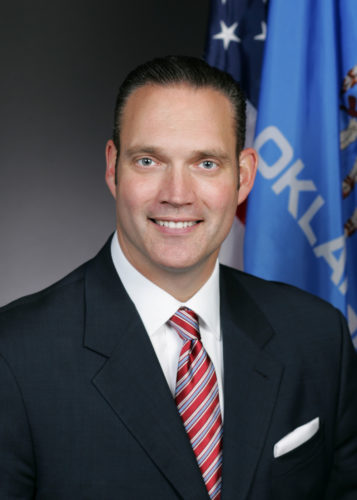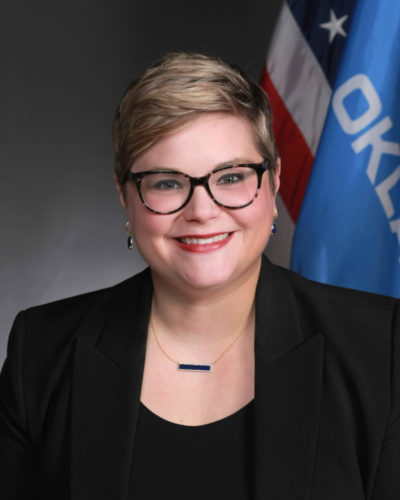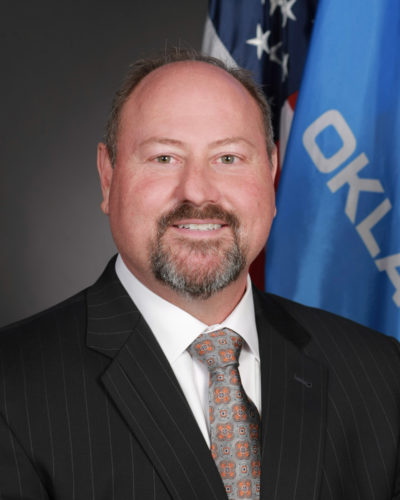The Oklahoma House passed on Friday a $8.1 Billion budget for Fiscal Year 2020. It is a $633 million dollar increase from the current state spending plan. Common education gets an additional $157.7 million including a $1200 teacher pay raise. House Bill 2765 is the budget bill. It passed 76-23.
House Speaker Charles McCall said this budget addresses many issues lawmakers had made priorities.
 “House Republicans had several priorities at the start of the 2019 legislative session that we based on conversations we had with voters on the doorsteps during the summer,” said McCall. “Those priorities included another teacher pay raise on top of the historic pay raise we provided last session, more money for the classroom on top of the large investment we made to public education last session, reestablishing our county infrastructure investment plan, more resources devoted toward rooting out waste and inefficiencies in government spending and increasing our savings to be better prepared for future economic downturns. We have accomplished all of those goals with this budget agreement.”
“House Republicans had several priorities at the start of the 2019 legislative session that we based on conversations we had with voters on the doorsteps during the summer,” said McCall. “Those priorities included another teacher pay raise on top of the historic pay raise we provided last session, more money for the classroom on top of the large investment we made to public education last session, reestablishing our county infrastructure investment plan, more resources devoted toward rooting out waste and inefficiencies in government spending and increasing our savings to be better prepared for future economic downturns. We have accomplished all of those goals with this budget agreement.”
The budget includes $230 million in savings. Twenty-nine million dollars will go help to stabilize future fluctuations in the federal matching fund formula for Medicaid, while $201 million will be tucked away to cushion against future economic downturns.
During debate on HB 2765, the contention that House Democrats wanted to spend every dollars instead of putting it a savings account didn’t sit well with House Minority Leader Rep. Emily Virgin.
 “The accusations made during debates that House Democrats want to spend every dollar of the state’s money and not save any is a ‘mistruth’ at best and at worst an outright lie. We absolutely support saving money, and, fortunately, Oklahoma has a Rainy Day Fund for that specific purpose.
“The accusations made during debates that House Democrats want to spend every dollar of the state’s money and not save any is a ‘mistruth’ at best and at worst an outright lie. We absolutely support saving money, and, fortunately, Oklahoma has a Rainy Day Fund for that specific purpose.
The problem is that over the last several years, Republicans have used the Rainy Day money to fund income tax cuts and corporate tax credits that mostly benefit wealthy Oklahomans, while also cutting agency funding.
Last year, we passed one of the largest revenue packages in the history of Oklahoma, and we did so specifically to invest in core services. Thanks to that revenue, we now have more than $450 Million in the Rainy Day Fund with an expectation of another $400 million to be added next year.
Taking $200 million from taxpayers and putting it into a bank account isn’t fiscal responsibility, it is legislative malpractice. Our position is that this money should be invested back into our students, our healthcare, and our infrastructure, while we also save the $450 million in the Rainy Day Fund,” said Virgin in a statement.
In the meantime, House Appropriations and Budget Committee Chairman Rep. Kevin Wallace said this is the best budget he’s been involved with during his time in the Legislature.
 “I said last year to ‘not let the perfect be the enemy of the good,’ but this year I said to ‘not let the perfect be the enemy of the great’,” said House Appropriations and Budget Chairman Kevin Wallace, R-Wellston. “The Fiscal Year 2019 budget was the best budget that I had seen since I arrived in the House, and I believe the Fiscal Year 2020 budget is substantially better. This is a great budget, and it has a little bit of everything, including new funding to meet the needs of our most vital government agencies and a historic savings of surplus funds that will put future Legislatures in a much better financial position than we arrived in.”
“I said last year to ‘not let the perfect be the enemy of the good,’ but this year I said to ‘not let the perfect be the enemy of the great’,” said House Appropriations and Budget Chairman Kevin Wallace, R-Wellston. “The Fiscal Year 2019 budget was the best budget that I had seen since I arrived in the House, and I believe the Fiscal Year 2020 budget is substantially better. This is a great budget, and it has a little bit of everything, including new funding to meet the needs of our most vital government agencies and a historic savings of surplus funds that will put future Legislatures in a much better financial position than we arrived in.”
The Senate gets its turn with the budget this week, in hopes of ending the session by Friday.


